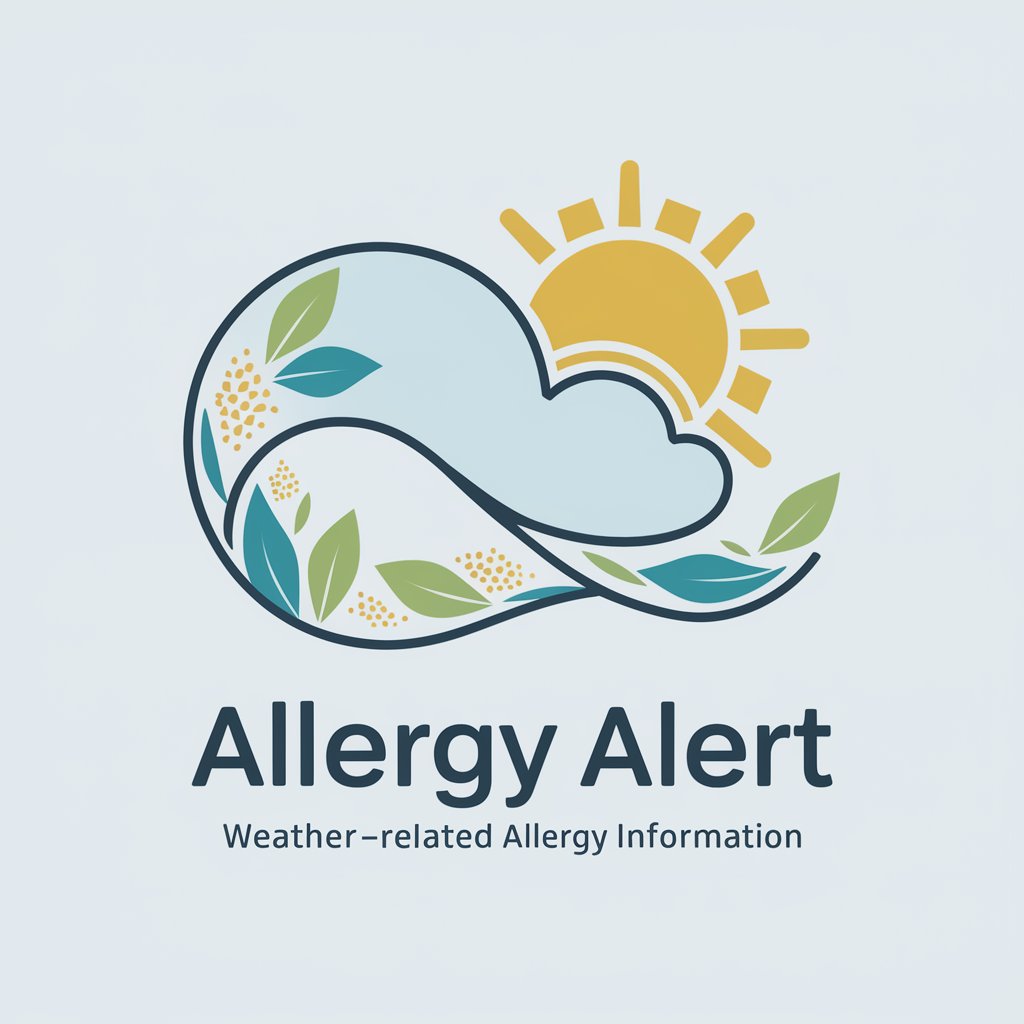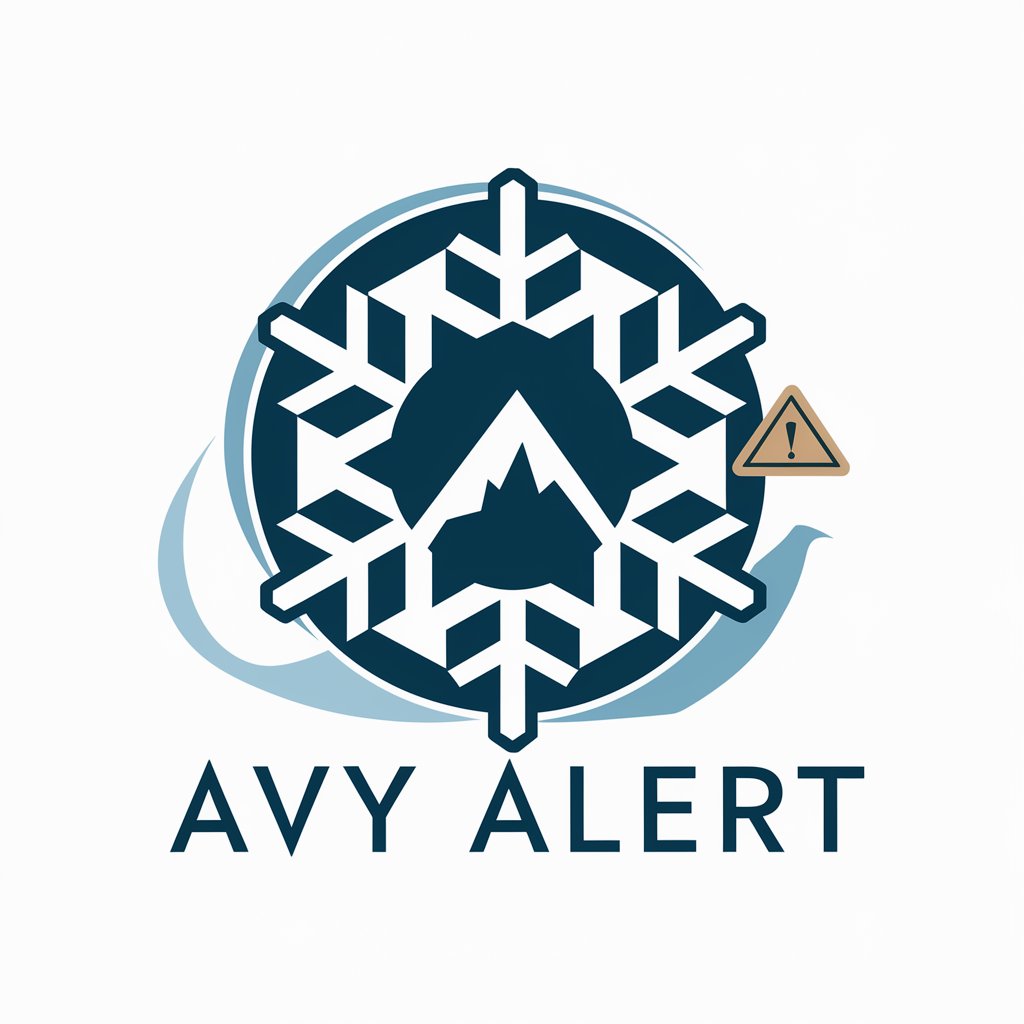Allergy Alert - Allergy Weather Monitoring

Hi there! How can I assist with your allergy concerns today?
Breathe Easier with AI-driven Allergy Forecasts
Can you provide today's pollen count for my area?
What's the air quality forecast for tomorrow?
How might today's weather impact my allergies?
What are some tips for managing allergies during high pollen seasons?
Get Embed Code
Overview of Allergy Alert
Allergy Alert is designed as a specialized AI advisor focused on providing weather-related allergy information. Its primary purpose is to assist individuals in managing their allergy symptoms by alerting them to weather conditions that might exacerbate these symptoms. For instance, Allergy Alert can notify a user when pollen counts are high in their area or if there is a forecasted change in weather that might trigger their symptoms, such as a shift from dry to humid conditions, which can affect mold spore levels in the air. By integrating real-time data on pollen counts, air quality, and weather forecasts, Allergy Alert offers timely advice to mitigate allergy discomfort. Powered by ChatGPT-4o。

Key Functions of Allergy Alert
Pollen Count Notifications
Example
A user in a heavily wooded area receives an alert that pollen levels from trees like oak and birch are particularly high, allowing them to take preventive measures like closing windows and using air purifiers.
Scenario
This function is critical during spring and early summer when tree pollen is at its peak, potentially causing significant discomfort for those with allergic rhinitis.
Air Quality Alerts
Example
A user with asthma gets a notification about poor air quality due to increased pollution levels, which could trigger asthma symptoms alongside allergic reactions.
Scenario
This is especially useful on days with high traffic or industrial pollution, or when weather conditions like high heat increase ozone levels.
Weather Change Warnings
Example
A user sensitive to changes in humidity receives forecasts predicting a rise in humidity that could escalate mold spore proliferation, prompting them to use dehumidifiers and mold-resistant cleaners in their home.
Scenario
Such warnings are beneficial during transitional weather periods, such as the onset of fall or spring, when sudden changes in temperature and humidity can affect indoor and outdoor allergen levels.
Target Users of Allergy Alert
Individuals with Seasonal Allergies
People who suffer from seasonal allergies can benefit from real-time updates on pollen and mold spore levels, helping them to avoid exposure during high-risk times and manage symptoms more effectively.
Asthma Patients
Patients with asthma, particularly those whose symptoms are exacerbated by allergens, can use Allergy Alert to stay informed about air quality and weather conditions that might affect their respiratory health.
Outdoor Enthusiasts
Hikers, cyclists, and gardeners, who spend a lot of time outdoors, can use Allergy Alert to plan their activities around lower pollen and pollution levels, thereby minimizing allergy and respiratory issues.

How to Use Allergy Alert
Start Free Trial
Visit yeschat.ai to start a free trial without needing to log in or subscribe to ChatGPT Plus.
Set Location
Enter your current location to receive localized weather and allergen forecasts relevant to your area.
Specify Allergies
List specific allergens you're sensitive to, such as pollen, dust, or mold, to tailor the alerts and advice you receive.
Configure Alerts
Choose how you want to receive updates (e.g., daily, weekly) and via which platform (email, app notification).
Review Health Tips
Access and utilize the provided tips and recommendations for managing allergy symptoms based on current and forecasted conditions.
Try other advanced and practical GPTs
Alert Buddy
Your AI-powered insightful companion

Everwatch: Global News Monitor
Monitoring Global Risks with AI

Media Monitor
AI-powered insights into media coverage

Macro Monitor
Empowering Economic Insights with AI

Monitor Master
AI-Powered Monitoring Expertise

Market Monitor
Insightful AI-powered Earnings Analysis

Avy Alert
Empowering Safety with AI-Powered Avalanche Forecasts

Scam Alert
Empowering email safety through AI analysis.

MelaniNation Key
AI-powered Historical Insight

Key Finder
Never lose your keys again with AI!

Key Formatter
Simplify keyboard shortcut display with AI

Beat and Key Finder
Unveil BPM and Key with AI

Frequently Asked Questions About Allergy Alert
What types of allergens does Allergy Alert track?
Allergy Alert tracks a variety of environmental allergens including pollen, mold spores, dust mites, and pet dander. The tool provides updates based on real-time weather conditions and forecasts.
How accurate are the allergy forecasts?
Allergy Alert forecasts are based on advanced modeling of weather data and allergen concentrations, providing a high level of accuracy. Regular updates ensure that the forecasts stay current with changing weather patterns.
Can Allergy Alert suggest ways to minimize exposure to allergens?
Yes, based on the current allergen levels and weather conditions, Allergy Alert offers practical advice such as the best times to go outside, when to keep windows closed, and how to clean your environment to reduce allergen exposure.
Is there a mobile app available for Allergy Alert?
Allergy Alert is accessible via a web interface. As of now, there is no dedicated mobile app, but the website is optimized for both desktop and mobile use, ensuring a seamless user experience on any device.
Does Allergy Alert integrate with other health tracking apps?
Currently, Allergy Alert does not integrate directly with other health tracking apps, but it provides exportable data that can be manually inputted into many common health management platforms.
